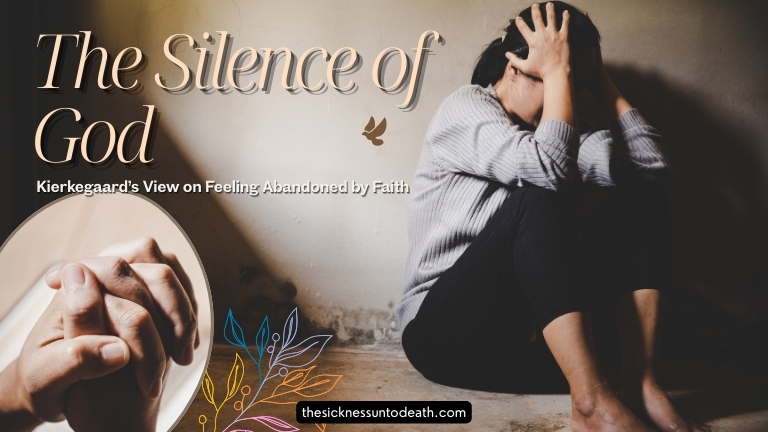There are moments in the life of faith that feel like standing in a void. Prayers go unanswered. Comfort does not come. The presence of God — once felt so intimately — withdraws into silence. For many believers, this is one of the most painful spiritual experiences: not just doubt, but the feeling of abandonment. Yet Søren Kierkegaard, the 19th-century Danish philosopher and theologian, invites us to see this silence not as evidence of divine absence — but as part of a deeper, more trusting faith.
When God Is Silent
Kierkegaard understood that faith is not always a warm feeling or a clear answer. In fact, some of the most defining moments in spiritual life come when God seems furthest away. Rather than viewing these moments as a failure of belief, he saw them as part of the authentic journey of the soul.
In The Sickness Unto Death, Kierkegaard explores the internal despair that arises when one feels cut off from the eternal. Yet rather than urging us to escape that despair with easy comforts, he encourages us to move through it — to recognise it as a sign that something eternal is being sought, even in the silence.
Faith in the Absence of Feelings
Modern spirituality often emphasises emotional connection — feeling close to God, experiencing peace or joy. But Kierkegaard reminds us that faith is not a mood. It is a commitment. And sometimes, true faith is most powerfully expressed not in moments of spiritual clarity, but in choosing to believe when all feelings fall away.
Divine silence, for Kierkegaard, is not a punishment. It is a test of love and trust. Much like a relationship that deepens in quiet understanding, faith matures when it endures without signs or sensations.
The Risk of Faith
Kierkegaard famously described faith as a “leap” — a passionate, inward risk taken without proof or certainty. When God is silent, we are thrown back onto that leap. We must decide whether to trust in a presence we cannot see, and a promise we cannot touch.
This is not blind faith. It is a courageous, defiant hope. To remain faithful when heaven feels closed is, in Kierkegaard’s view, to participate in a deeper mystery — one where the silence itself forms the space for transformation.
Divine Silence and the Modern Soul
In today’s world, silence often feels like failure. We expect answers, immediacy, and resolution. But Kierkegaard offers a slower, more inward path. Divine silence is not the absence of God — it is an invitation to listen more carefully, to deepen the self, and to wait in hope.
In the stillness, something profound takes root: a trust that is no longer based on what we feel, but on who we are becoming.
💡 Struggling with silence in your spiritual life? Kierkegaard’s reflections may be the comfort you didn’t know you needed. Don’t forget to check out The Sickness Unto Death: A Modern Translation for the 21st Century

